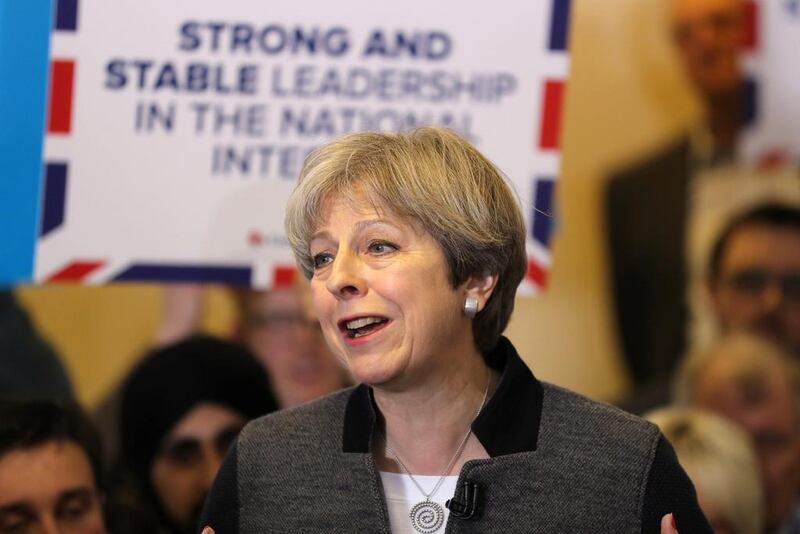A friend runs a family restaurant in a small village in Norfolk on the east coast of England. He told me that the worst thing about a few of his customers was a flaw in the British character he calls "whingeing". By "whingers" he means people who do not complain to achieve anything, but merely mutter their sense of grievance without expecting anything to improve.
An elderly couple had for years eaten Friday lunch in his restaurant, but suddenly they stopped coming. My friend was concerned they were ill, and telephoned them at home in the village. The elderly man was embarrassed into admitting they were not sick but on a previous visit to the restaurant the French fries on his plate were cold. He did not complain to the waitress because he “didn’t want to cause any fuss”. The restaurant owner was stunned and then bemused. “Typically British,” he said, a man who would “whinge” privately to his friends rather than complain to the waitress and have a good meal.
This Norfolk story came to mind when I saw the opinion poll saying that almost half of British people, 47 per cent, disapprove of the way in which the prime minister Theresa May is handling Brexit. Only 28 per cent of people approve. For now, let us avoid the merits or otherwise of the British decision to leave the European Union. The big question is how any British government and bureaucracy can turn a yes or no vote into workable policies with minimum damage to the British economy.
Various ideas have been floated. The British government talks of "friction free" borders, somehow controlling migration while maintaining wonderful trade relationships. The EU Brussels bureaucracy and other member state governments so far view Britain's suggestions as Alice in Wonderland, trying to make everyone believe three impossible things before breakfast. Commentators and politicians in Ireland, the only country with which the UK shares a land border, have been particularly scathing. They are also confused and very worried. They are not alone.
Since the Brexit vote I have travelled across western Europe. I have frequently been asked to explain British ideas on how Brexit will work. I have no idea, so I took to quoting Theresa May’s helpful observation that “Brexit means Brexit”. But then an American friend pointed out this sounded like Forrest Gump’s mother, whose favourite phrase was “Stupid Is As Stupid Does”.
Another old friend, a German doctor who once trained at an English hospital, offered a medical diagnosis. “Britain had a headache,” he said. “So you shot yourself in the foot. You still have the headache. But now you cannot walk.”
_____________________
More from Gavin Esler
[ BBC pay row should make us all question what we're worth ]
[ Twitter trolls and our depressing age of unenlightenment ]
[ My father and great uncle and their world war experiences ]
_____________________
I enjoy German humour, but having seen the 47 per cent disapproval figures for the British government's position, perhaps he is making a serious point. People who voted Leave and those who voted Remain can both find reasons to disapprove and to whinge. Uncontrolled European migration is a key "headache" for Leave voters. But all the signs are that controlling migration is not as easy as locking the doors and turning people away. "Shooting yourself in the foot" is the idea that most alarms Remainers. They see potentially massive trade dislocation, economic slowdown and skills shortages. Remainers, in other words, tend to ignore the immigration "headache" and concentrate on Britain limping into the unknown, while Leavers are not worried about the injured foot, because it is the pain of the immigration headache which consumes their thoughts.
Both sides have a point. Both have reasons to be dissatisfied. And both are guilty of an endless amount of whingeing, while offering little in terms of solutions beyond the nonsense of "Brexit means Brexit", "Just Leave" or "Let's Have Another Vote" and this time vote to Remain. One of the leaders of the Brexit campaign, the former Ukip leader Nigel Farage, has even begun talking of a "betrayal", although full-scale negotiations have not yet properly begun. Mr Farage could not be politically further from communism in the British political spectrum but his "betrayal" whinge is notably reminiscent of those Marxists who continue to assert that Marxism is a really great idea, it's just never been done properly.
So amid my own complaining about the whingers on both sides, may I offer a positive suggestion? Stop the slogans and the abuse and instead spell out in simple terms three things familiar to any student of business practice: objective, strategy and tactics. Can we please be clear what is Britain’s realistic objective here, not the Alice in Wonderland fairy tale? What strategies are necessary to achieve this objective? And then, finally, let us not worry so much about tactics. Right now we have slogans instead of strategies, no clearly defined objective, and a plethora of tactical positioning derided in Dublin and bludgeoned in Brussels. The biggest surprise is that only 47 per cent disapprove. But then the whingeing, including my own, has only just begun.
Gavin Esler is a journalist, television presenter and author





